UPDATE: At the time of writing this, Moroccan snacks have increased in price by 20-50%. This is mostly due to the economical situation of the world and the recession we are going through. However, it should be clarified that the arguments and concepts listed below are still relevant.
Whether snacks are cheap anymore, I leave that to you to decide.
With the rise of flour, oil, and fuel prices, How do Moroccan Snack companies maintain their profit?
The other day, I was eating a dessert snack called Twins which is a Spanish copy of Oreos but with less sugar and way richer chocolate. While I was purchasing this snack, my eyes stumbled across childhood biscuits selling for the same price I remember since childhood. This observation fascinated me, and I just had to learn why Moroccan Snacks maintained the same 1dh price for more than 20 years.
At a time when the world seems to have gone to sh*t, with rampant inflation and rising living costs, it seemed like a magnificent achievement that Bimo and Excelo held firmly on their price policies. Perhaps these CEOs should be running the country, but since I like to remain bottle-less, let’s get right on the topic: How Moroccan Snacks Are Cheap.
Stick around until the end for some fun facts and observations I discovered during the research of this article including brand beef and caloric information.
Being B2B Over B2C
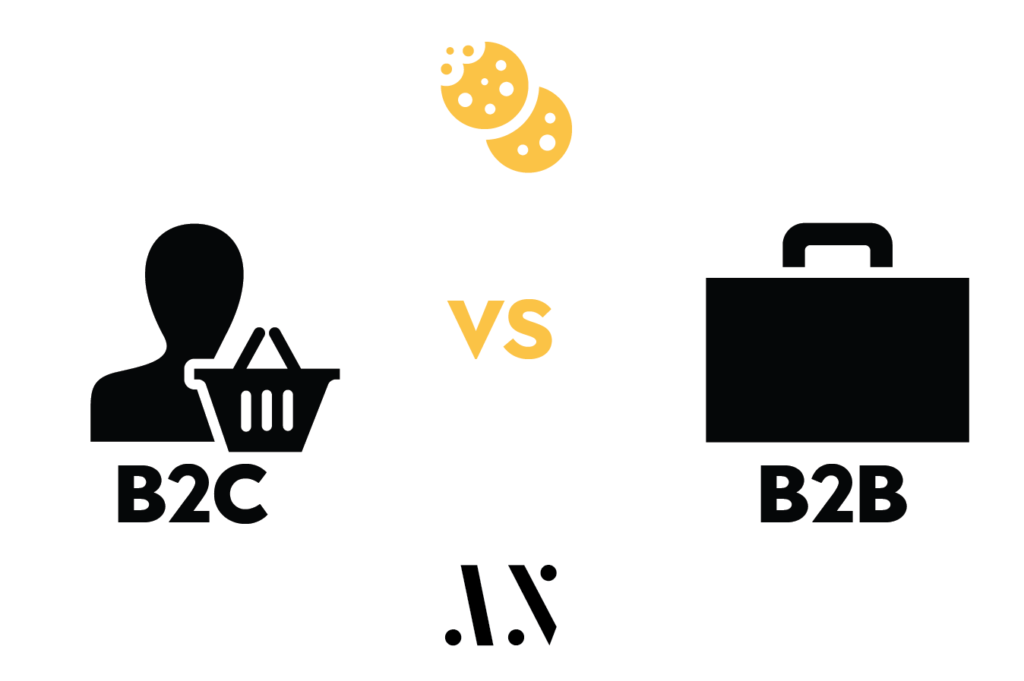
Your initial thought might be “Wait that’s not right, Bimo and Excelo are B2C, I am the consumer who is receiving these products!”
First off, great job on understanding the difference between the two. Second, no. Technically speaking, Bimo and Excelo are B2B since they sell their products to other shops such as Marjane, Mini Markets, and Hanout. Specifically, their shipping system is a marvelous feat of planning, as Bimo and Excelo have created intricate delivery networks that ship their snacks from Casablanca factories across all areas of Morocco including impoverished towns.
Essentially, by not owning a physical selling location, these companies cut off a sizeable chunk of their budget and dedicate it to other resources like their factories, office, and logistics system that aim to further decrease costs and optimize profits.
Cheap Labor Cost
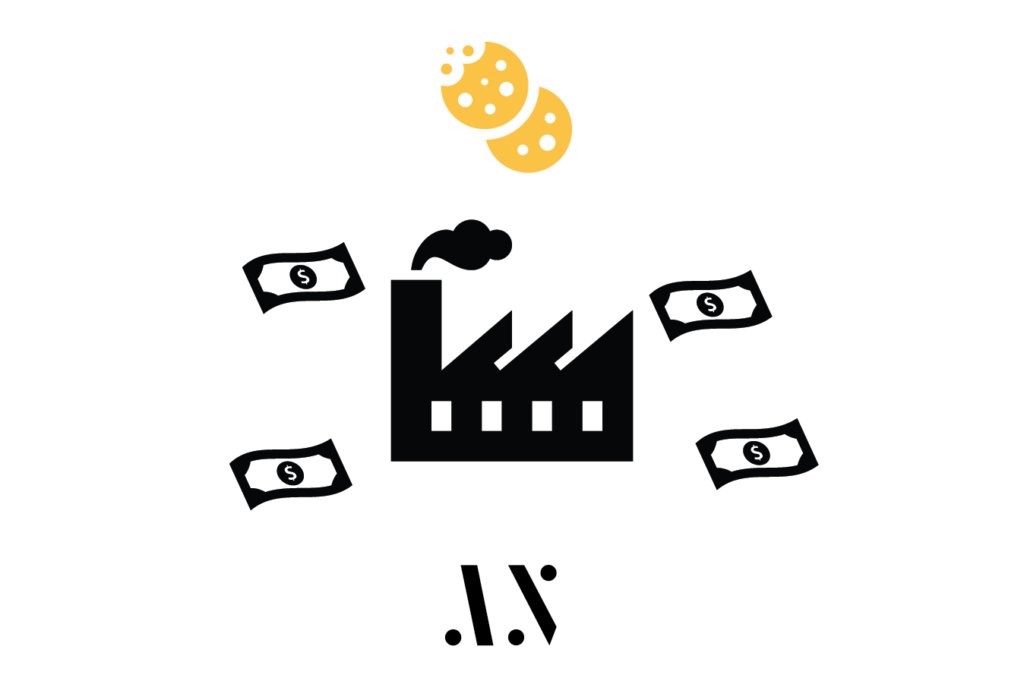
To keep these price snacks relatively low, Mondelez and Best Cookies as well as other international corporations, rely on cheap labor costs in third-world countries. Just like Nestle, these companies spend millions of dollars (international currency) to set up automated factories that partly produce these products by machine and finish off with human resources.
While there aren’t any public data available that state what’s the salary of a Bimo and Excelo worker, the national Moroccan law states that the minimum salary for contracted workers is 2700dh/month or 14,81dh/hours as of August 2022, or 15,55/hr starting September 2022 for hourly-based workers. Since factory workers often get paid by the hour, we can deduce the following:
Assuming that the average Bimo or Excelo person works from 8 to 5 (with a 1-hour lunch break in between) from Monday to Friday then we can calculate that the minimum salary of a Bimo or Excelo worker is 2400dh/month (August 2022) and 2500dh/month (Starting September 2022). However, this number is likely, not true since Mondelez promotes monetary bonuses and 13-month pay, so we can roughly say that the average employee makes 3000-4000dh.
In retrospect, these workers are earning the average Moroccan salary which implies that while Mondelez is paying fairly, this amount is minuscule when compared on an international scale. Consequently, cheap labor allows Bimo and Excelo to have more wiggle room in their pricing and additional profits for their investors.
The Choice of Ingredients Matters
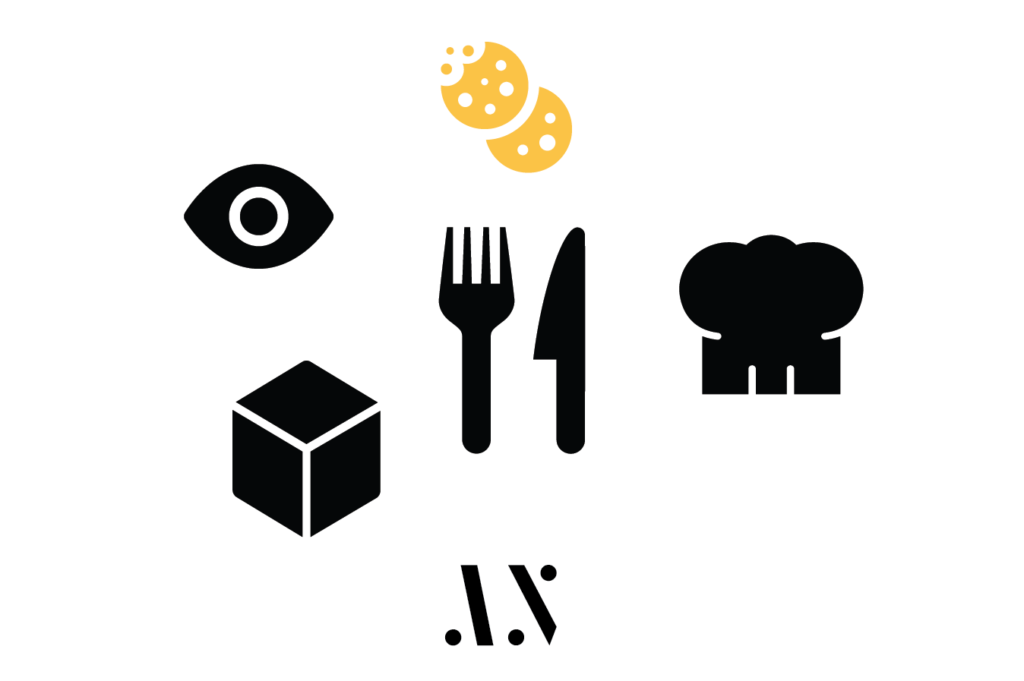
The ingredient choice of a snack is arguably the most important factor that determines its prices. While this list may vary from product to product depending on what they are, nearly all snacks across all brands contain the same products and they are the ones below.
NOTE: Preservatives are not included in this list, as they are additional costs that companies must include to prolong shelf-life. As such, they are ingredients that augment the price rather than decrease it.
Vegetable Oil/Fat
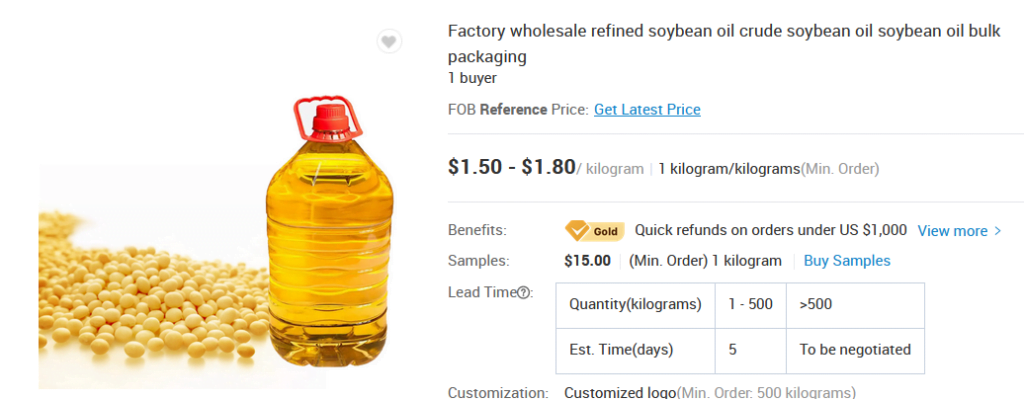
Soybean Vegetable fat and Palm Vegetable Oil are the most common types of vegetable fats used in baking snacks. This is because using vegetable fats helps create a more rich chocolate texture and flavor as well as create a crumbling effect for pastries like Merendina or Genova.
In fact, Soybean and Palm oil are the most popular oils in the world. Their high yield, availability, and cheap price render it the perfect ingredient for big quantities. Moreover, their neutral taste allows manufacturers to freely experiment with ratios in contrast to other oils like Olive and Peanut which pack more flavor.
Powders Instead of Solids

Most manufacturers substitute full ingredients like Milk and Chocolate in favor of powdered ingredients like Cocoa powder and milk powder. This is because powdered substitutes are cheaper than their solid counterparts. Similarly, incorporating powder bags into mixing machines is far more practical for the production line.
The most common powders used in Moroccan snacks include Milk powder, Cocoa powder, Whey powder, and Vanilla powder (Also known as Vanillin). While it is easy to question these ingredients, the process of manufacturing snacks at a fast pace at a cheap price can only be done with the use of these powders.
Soya Lecithin

The backbone of EVERY snack I purchased to research this topic, Soya Lecithin (E322) also called Soybean Syrup is an emulsifier that thickens and mixes ingredients together (often binding chocolate to a biscuit or pastry) while keeping them soft. Surprisingly, this ingredient is healthy to the point of it being prescribed as a pill for pregnant mothers and cholesterol patients.
Not a lot can be said about E322, it is cheap, reliable, and does its job well. Be it a chocolate binder or sweetener, Soya Lecithin is a chemical compound that explains why Moroccan Snacks’ chocolate never melts away from the main snack.
A Concept Called Economy Of Scale
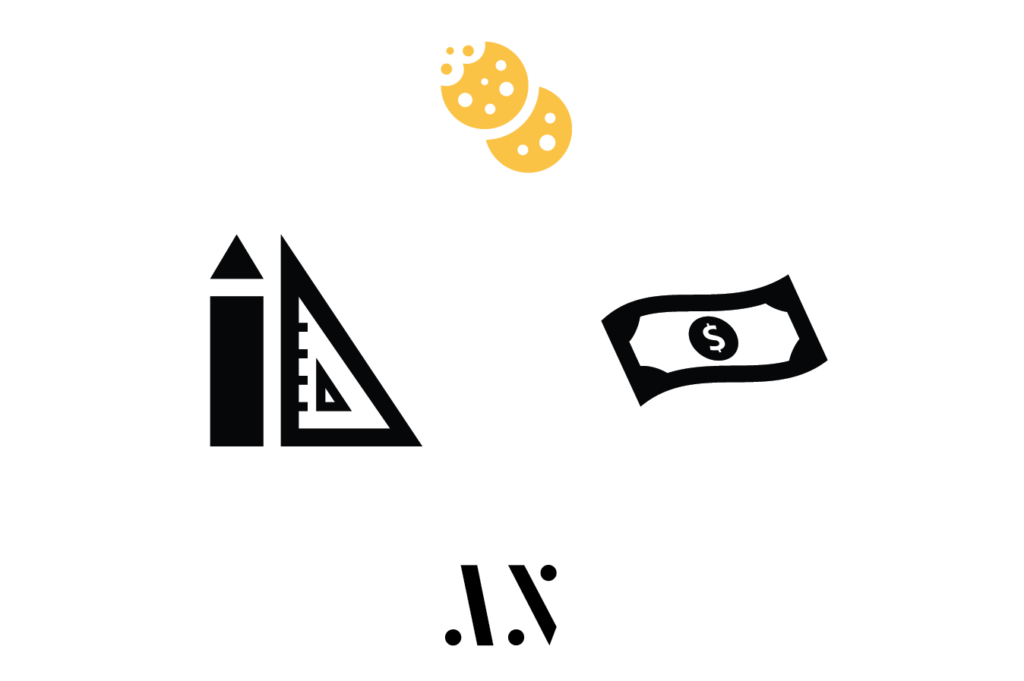
The economy of Scale is a microeconomic concept that dictates the profit of a product per unit produced. Typically, the more a company produces the more it increases the profit range as the cost of production is decreased for each unit. For Moroccan Snack companies, this concept is what allows them to maintain large profits.
If you don’t understand this concept then let’s consider this example:
Let’s suppose that a truck that transports snacks from Casablanca to Tanger costs Bimo around 1000dh. Now let’s say that this truck has shipped around 1000 units which implies that if all those snacks get sold then Bimo breaks even. However, if this truck carries 10,000 units then Bimo makes about 9000dh of profit.
Essentially, Economy of Scale allows corporations such as Excelo to offset production costs by producing hundreds of thousands of units.
It’s Simply Too Iconic To Change

The sheer effort and interest it took me to produce this article as well as for you to click and read it, proves that Moroccan Biscuits have become a staple cultural item that raised a generation. Be it a quick snack for the road or breakfast for busy people, we cannot deny just how much we love and cherish these snacks.
Additionally, the target audience of these brands is typically children and young students who cannot afford to spend a lot of money on snacks. Hence the cheap price policy allows their customers to purchase these snacks almost every day. For example, if a school of 500 kids bought a 1dh biscuit every business day then that brand has sold roughly 10,000dh worth of snacks per month.
Conclusion
Throughout this article, we have learned that thanks to cheap labor costs, ingredient choice, location policy, and B2B system; brands such as Bimo and Excelo maintain their strict and iconic cheap price policy. Perhaps the next time You will eat a Moroccan Snack, You might just be a bit more aware of why it cost that much.
Finally, I want to state that while this information is gathered from publicly available data, it is quite outdated (2016 studies in fact), which is the reason why other brands such as Be! and Hohos are not included in this study. Moreover, I also enjoyed this study/investigation piece, so look forward to more articles such as this one.
P.S: My favorite biscuit is Red Chocolate Hohos. What is yours?
Fun Facts and Other Random Discoveries About Moroccan Snacks
Who Are Bimo?
Bimo is a corporation owned by Mondelez which is a mother company that owns other popular brands such as Oreo, Tang, and Toblerone. According to public earning data by the National Cabinet in 2016 (most recent data available), Bimo holds the Number 1 Position of the Biscuit market in Morocco, owning a whopping 38% share of the market. Their most popular products include Merendina, Tango and Tagger.
Fun fact: Out of all other competitors, Bimo is the only brand that provides the caloric amount of each product up front, so shoppers can immediately know what they are eating (Unlike Excelo which often lists their calories per 100g rather than a packet). Additionally, Bimo products also come with cute notes for clients to read! Check it out next time.
Who Are Excelo?
Similarly, Excelo is the main competitor to Bimo. They are owned by Best Cookies and hold the second position in the Moroccan Biscuit market, owning a total of 26% of the market. Their most popular products include Genova, Choc’Up, and King Cookies.
Fun fact: After Excelo released Eyoo (a main competitor of Oreo), Mondelez (Bimo) invested 105 Million Dirhams to build a new factory to produce the locally produced Oreo that costs 3dh. This goes to show how fierce the competition between these two brands as well as a comment on how heated capitalism gets.
Side note: Chocolate Covered Eyoo is currently the most caloric snack, taxing your body with 226 calories which is just 9 calories more than King Cookies.
Who Are Henry’s?
An authentic Moroccan brand, Henry’s quietly ranks thirdly as the main biscuit company, humbly taking 8% of the market share. They are mostly known for their classic Henry’s and Flippo.
Fun Fact: This company is constantly experimenting with products, often releasing seasonal Ice Cream products which are insanely tasty and good (Fully biased). Moreover, Henry’s is also the brand behind Cigar, the least caloric biscuit with 103 calories.
